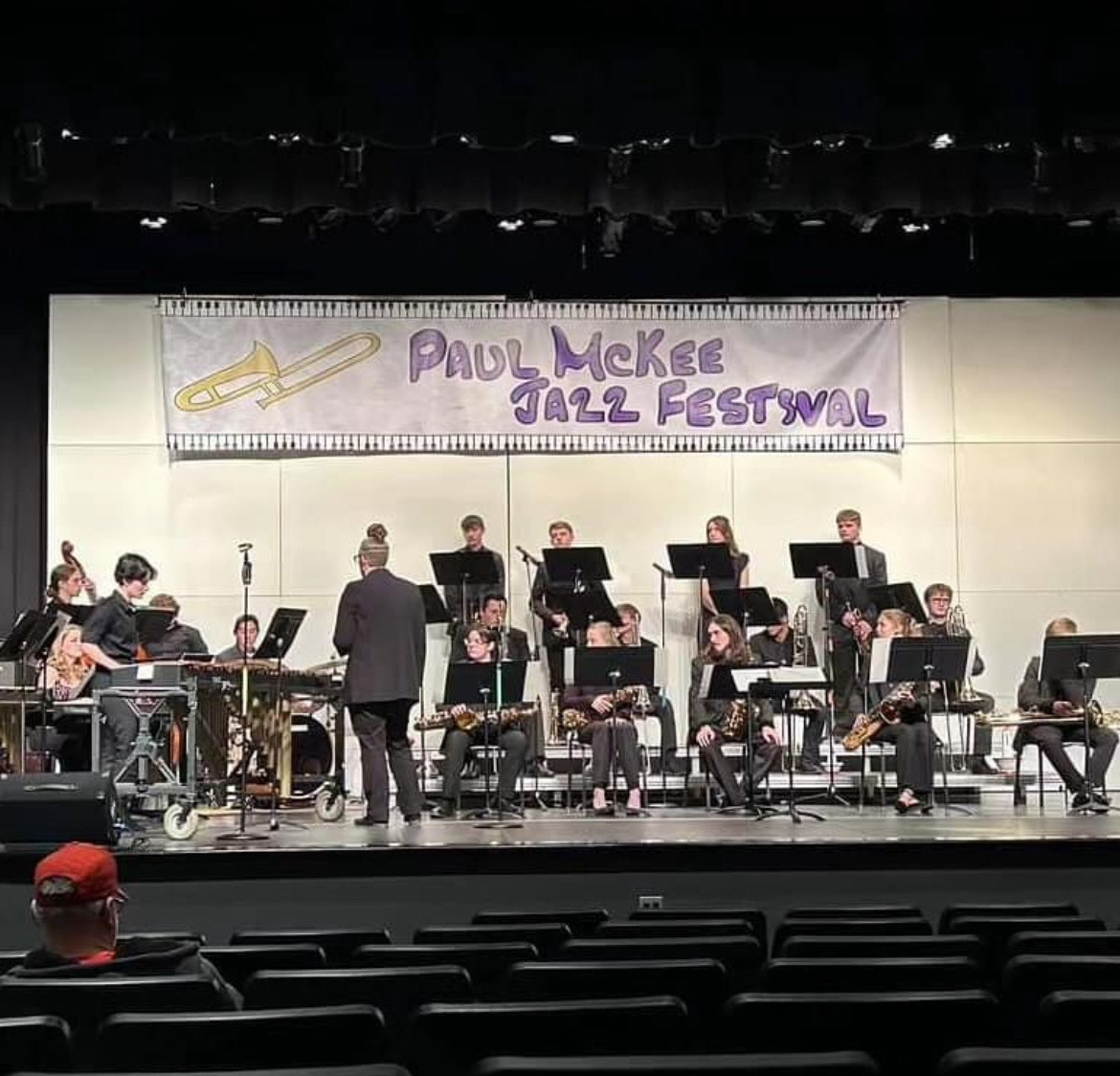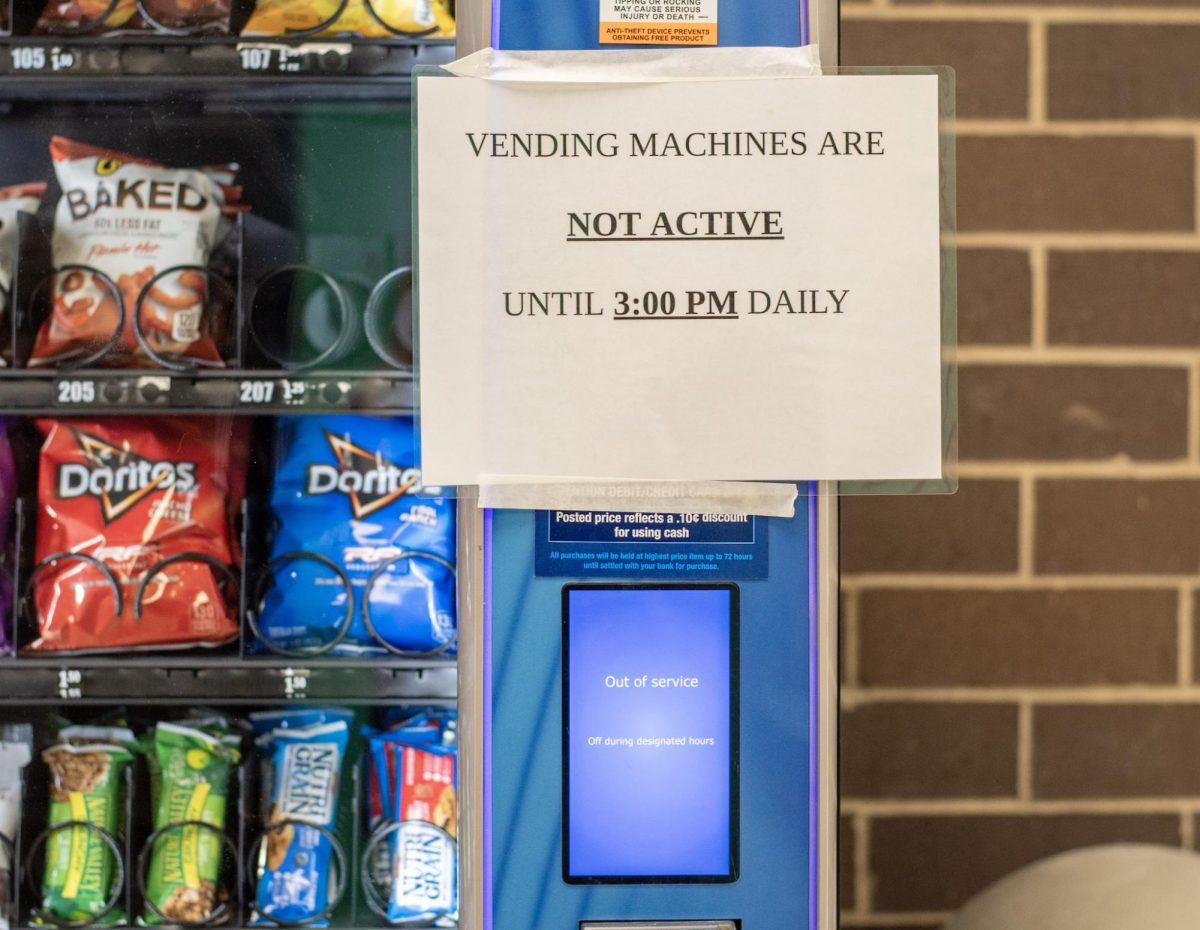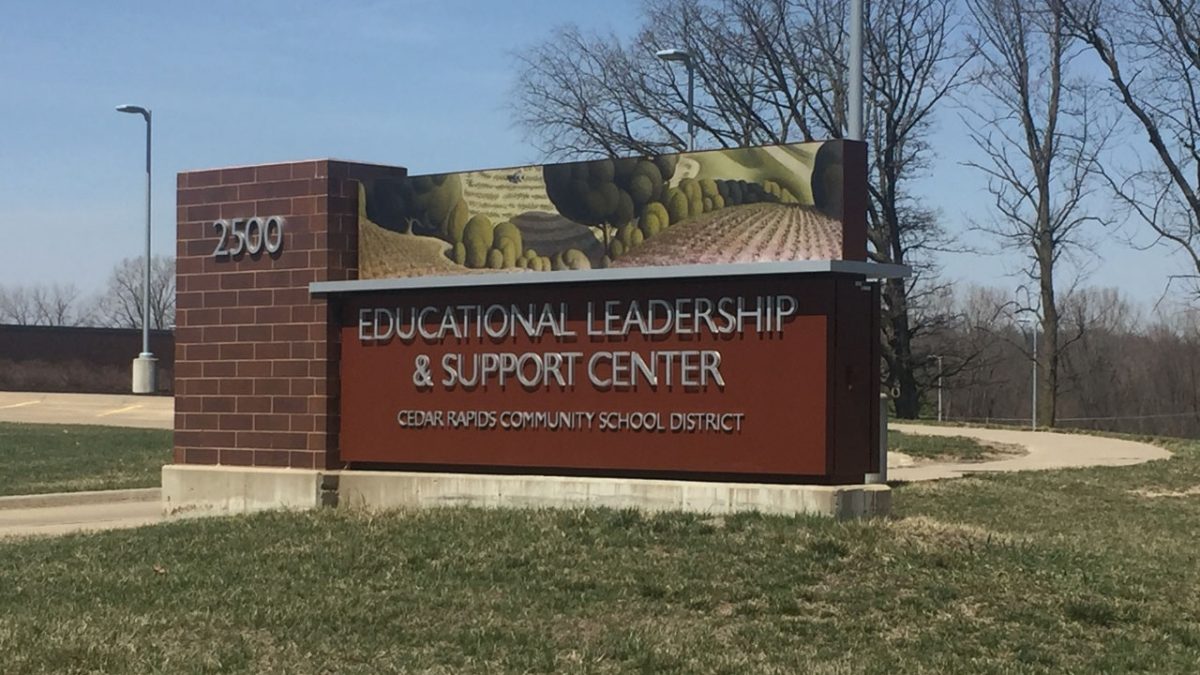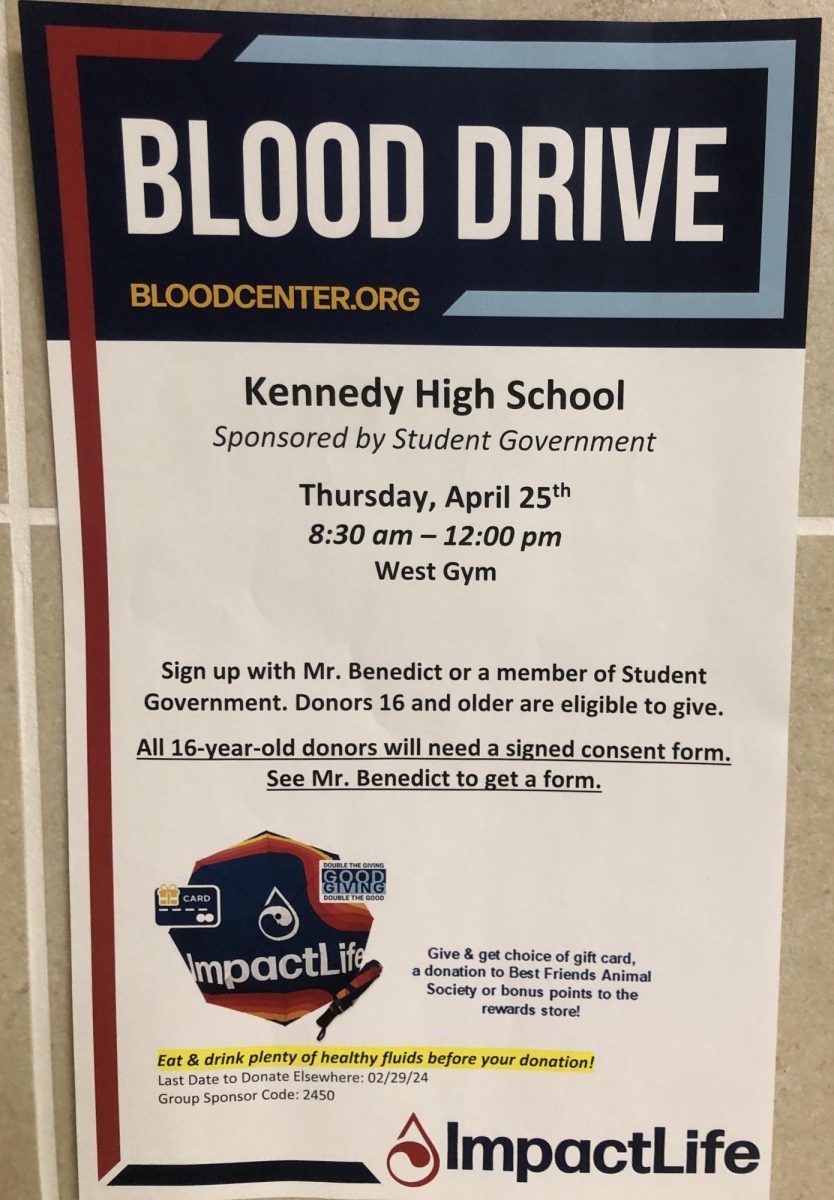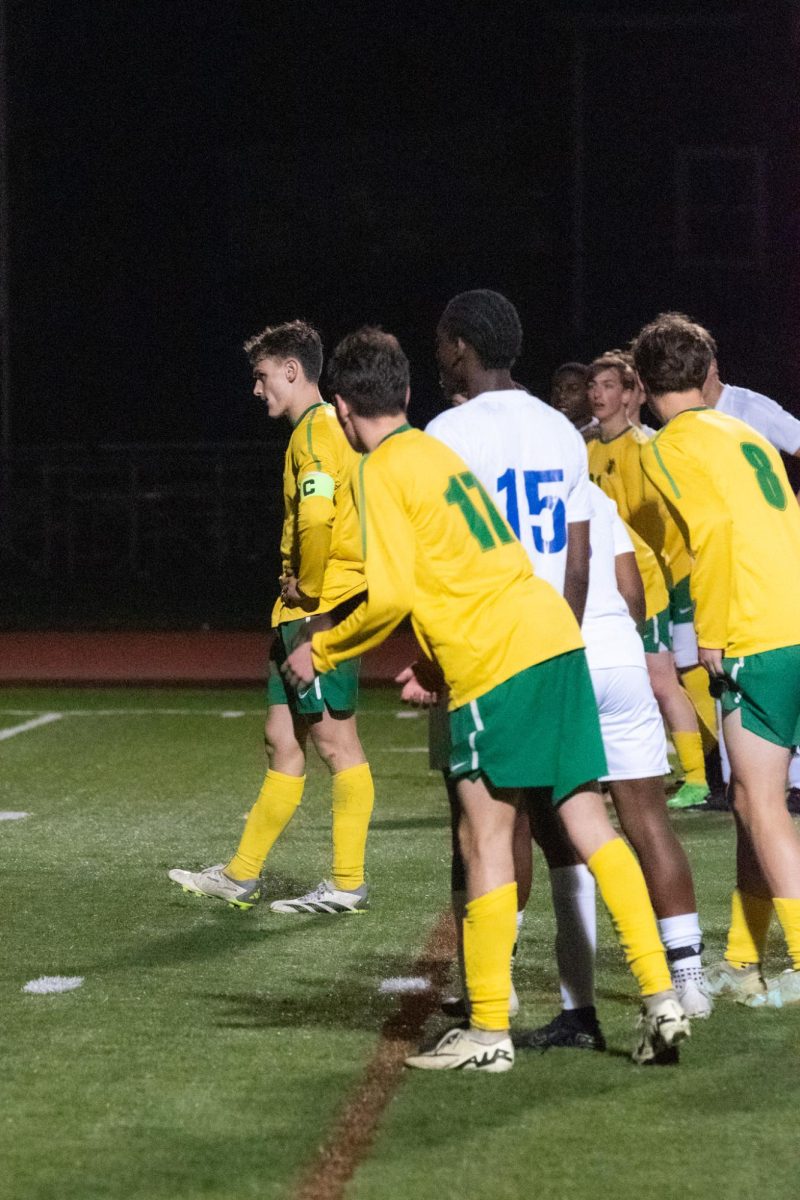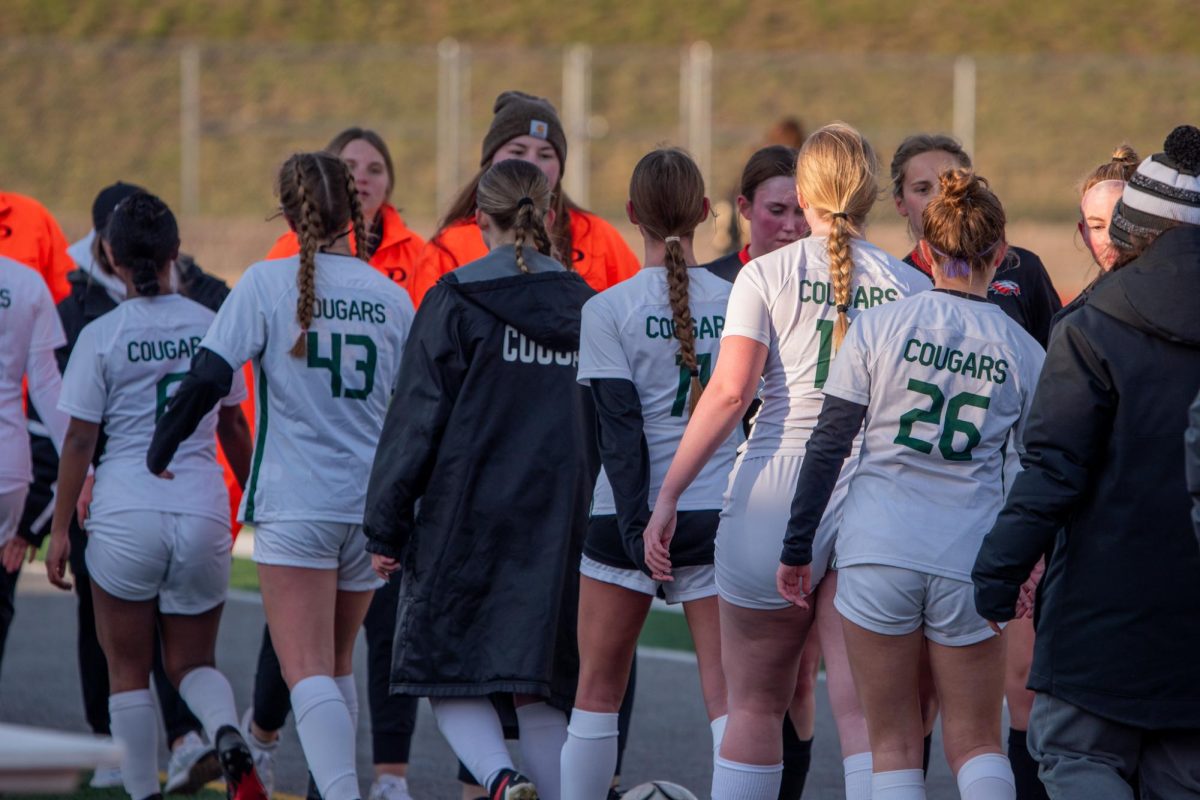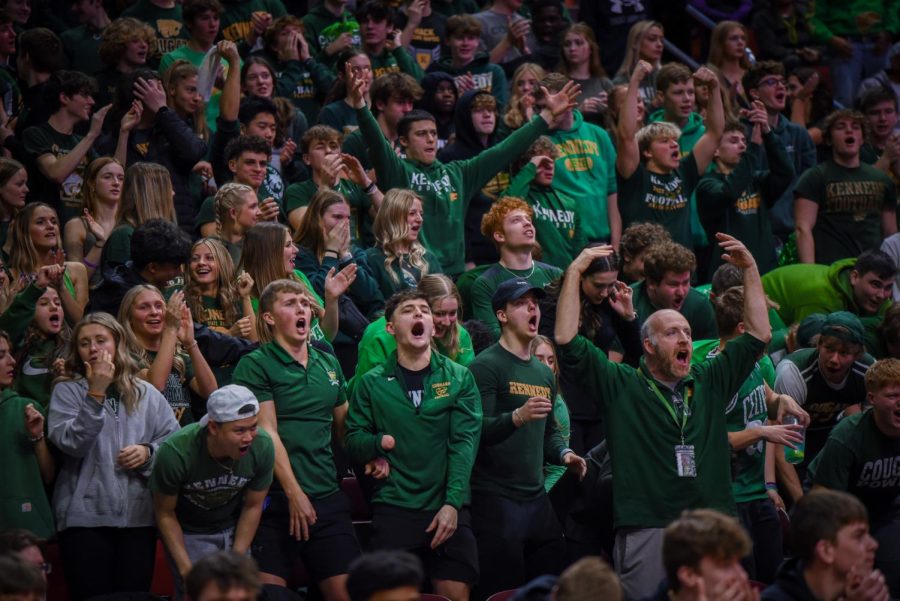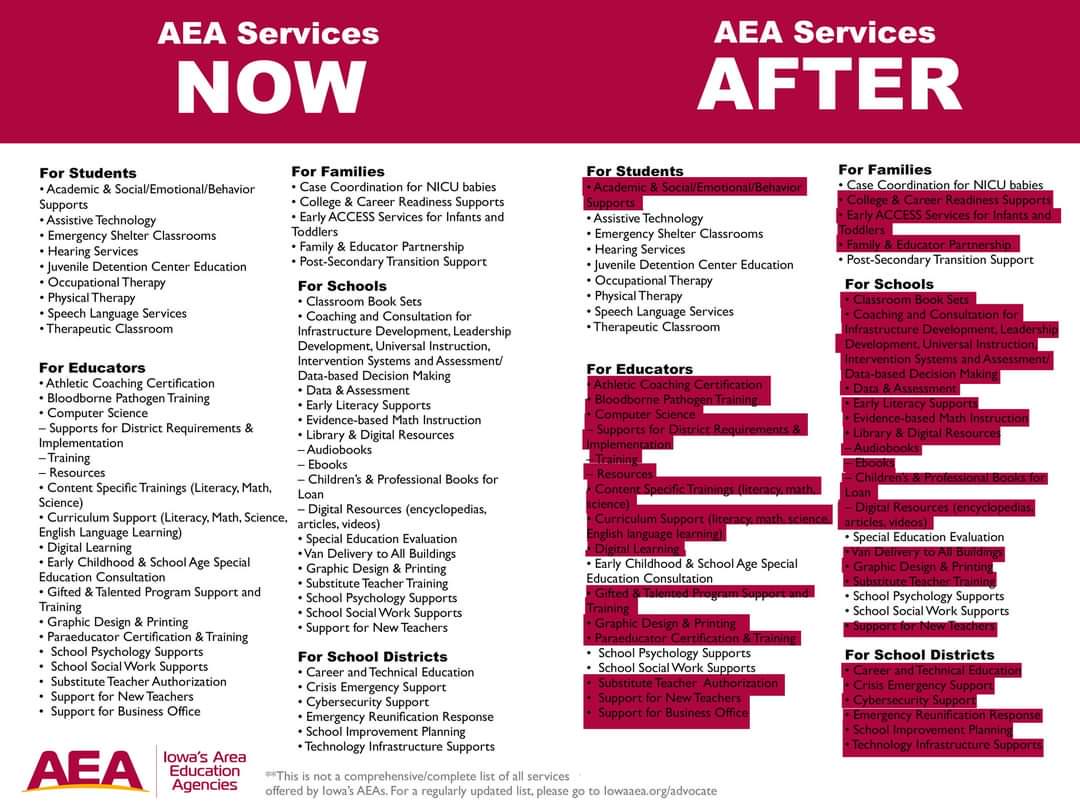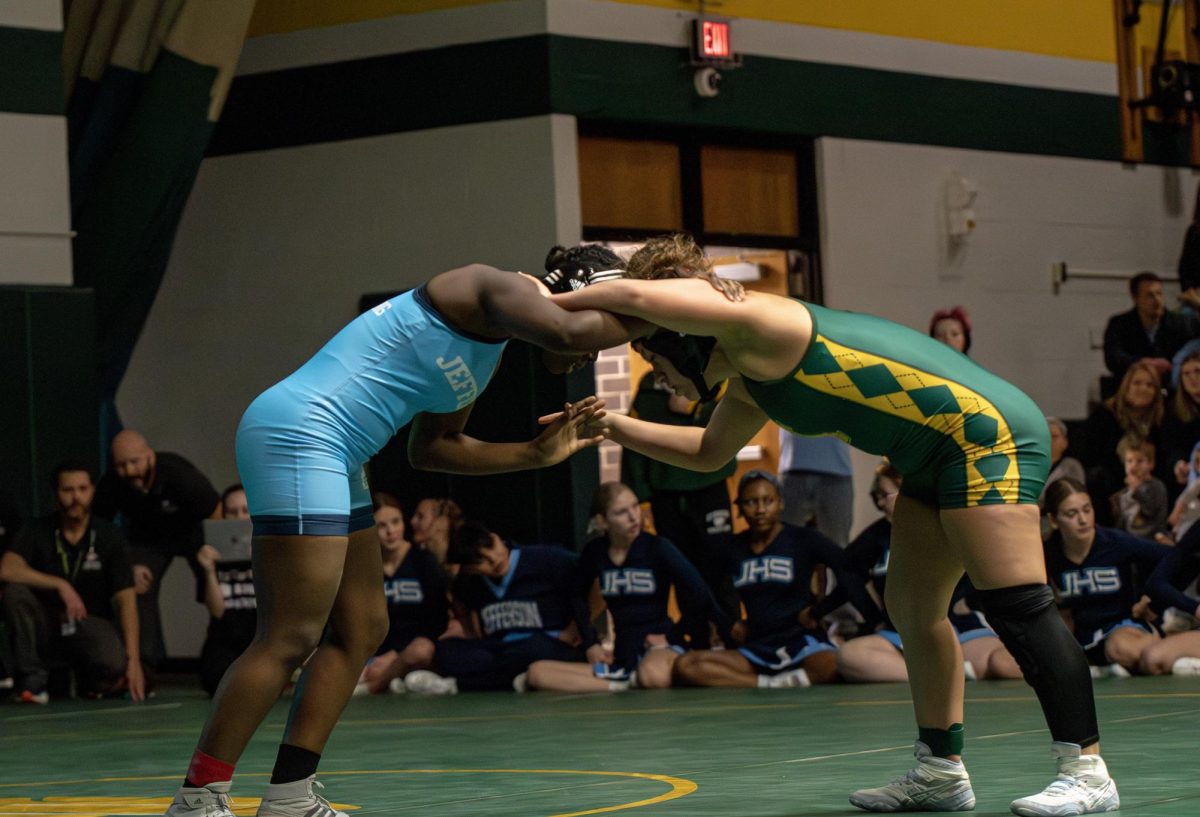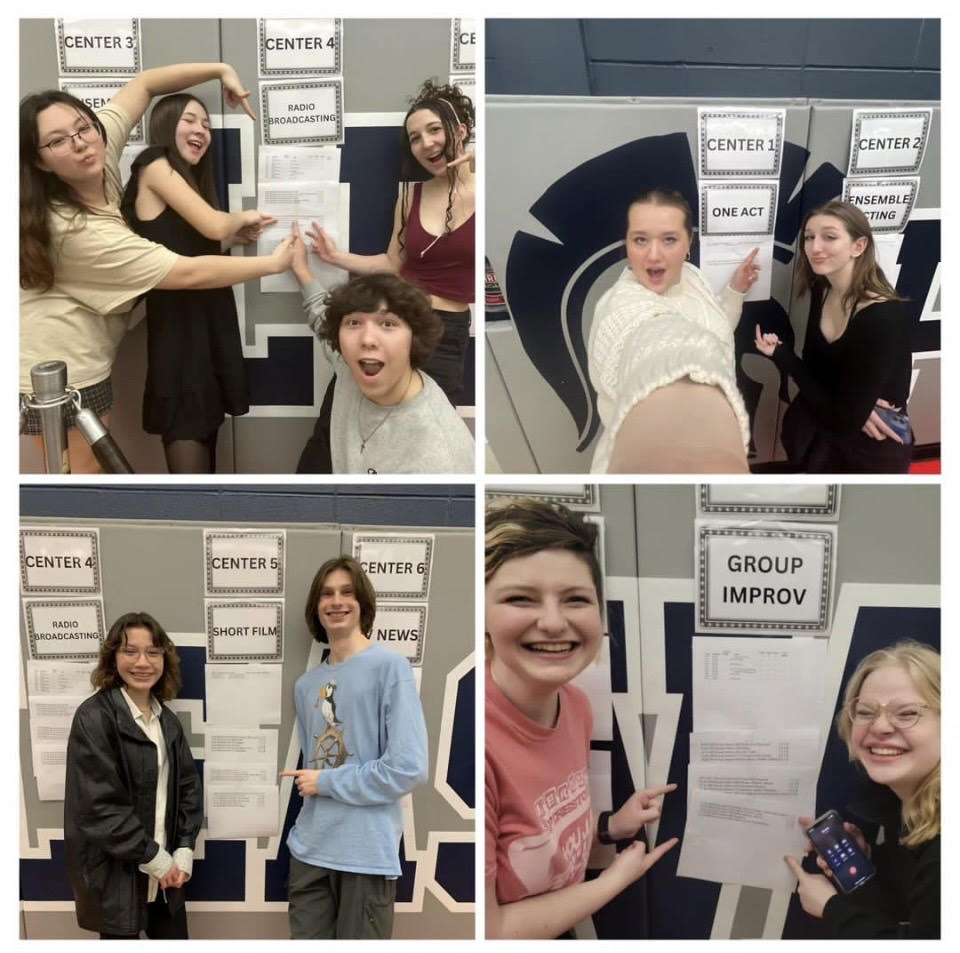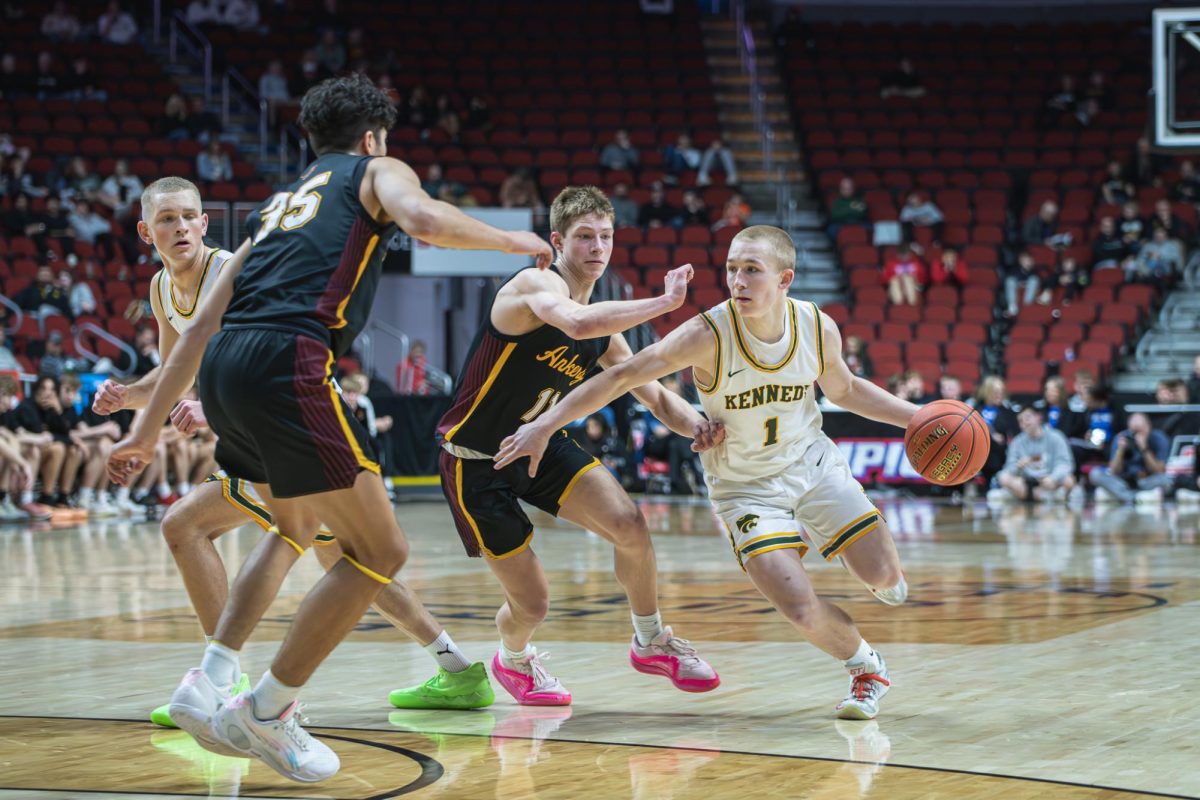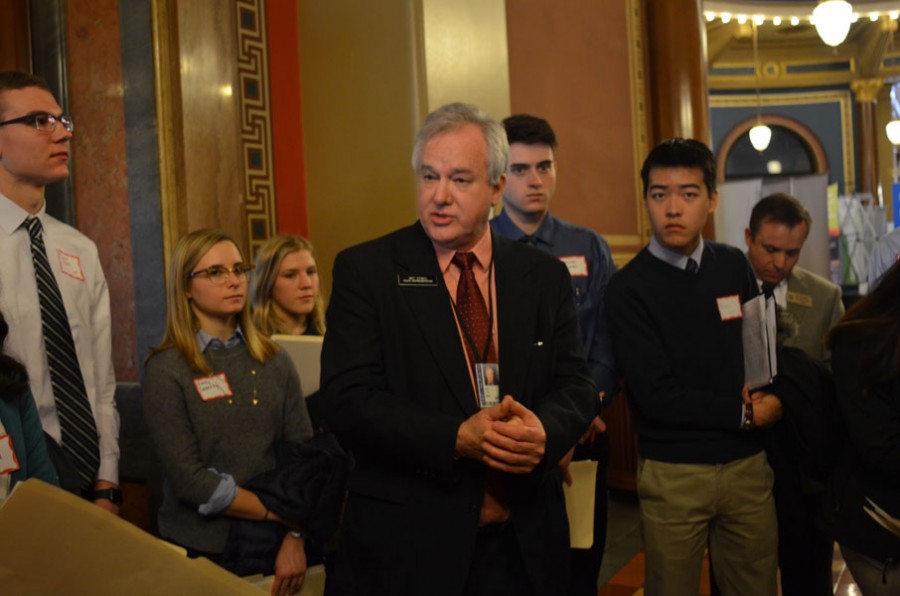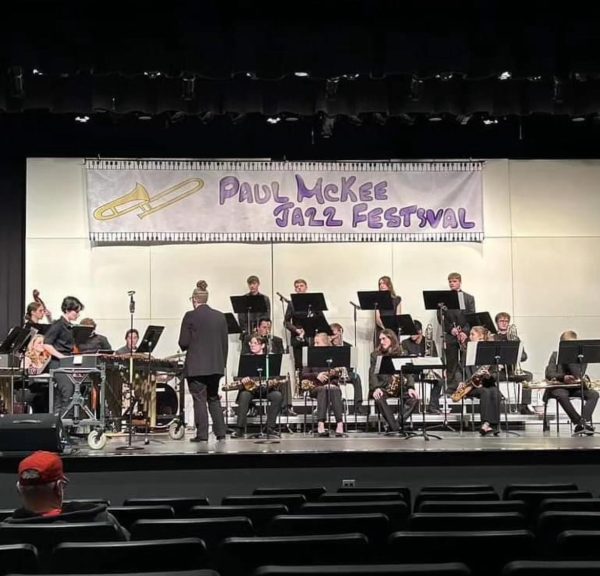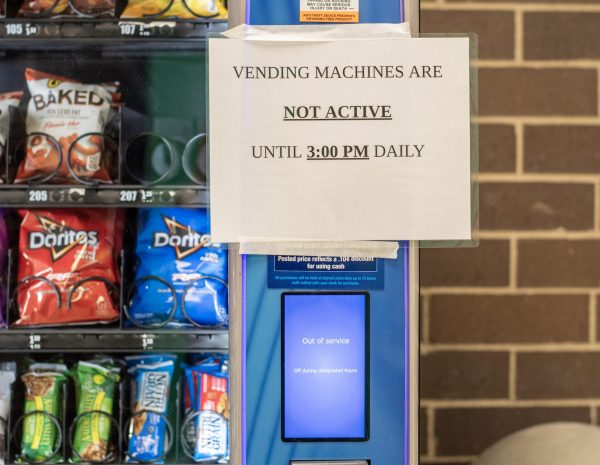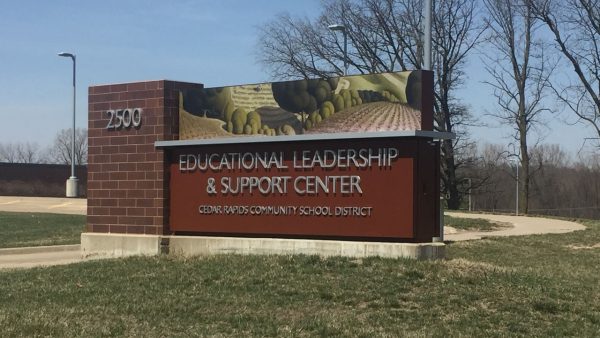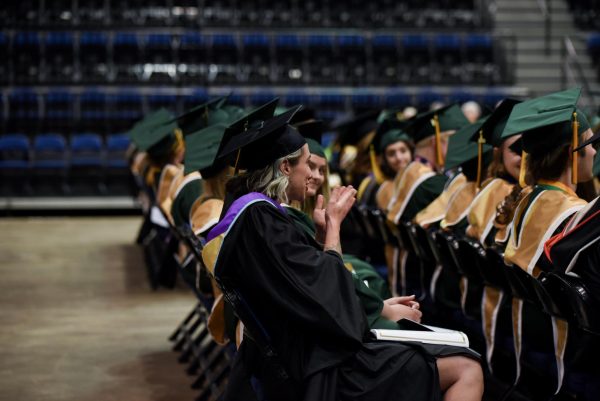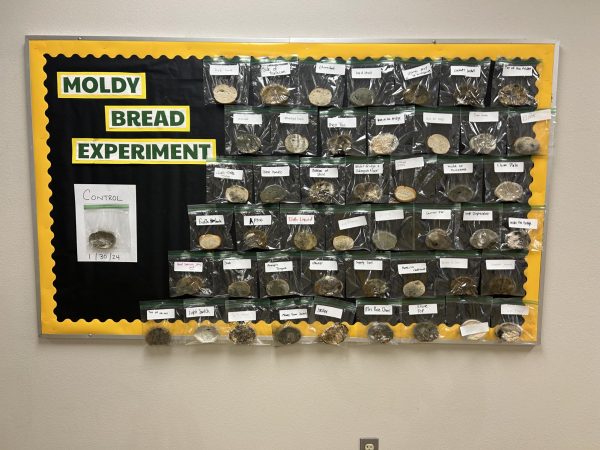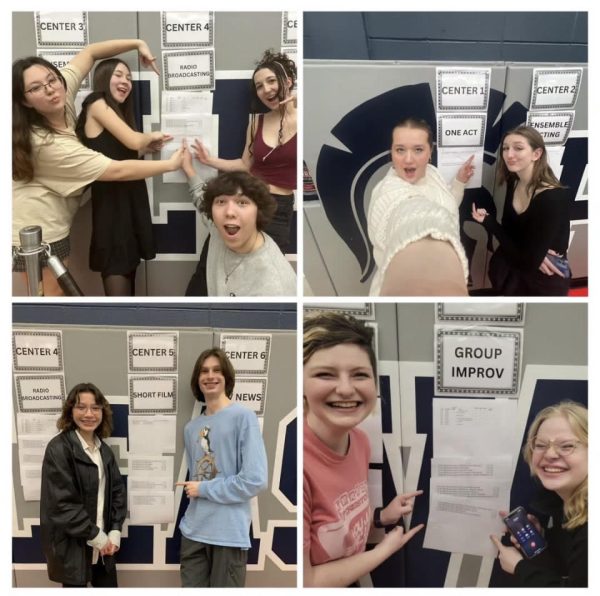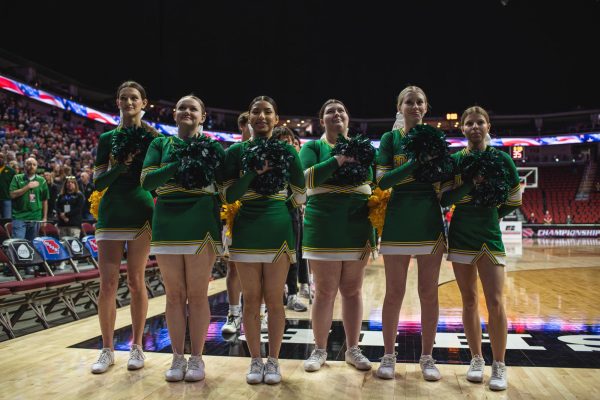For Better or For Worse
With changes to collective bargaining, the education budget and school choice on the horizon, what is the future of education in Iowa?
Kennedy students traveled to the capital last year to lobby for education funding. Democratic Representative Art Staed talked with students.
“Teachers’ working conditions are students’ learning conditions. Teachers under increased stress may not be able to fully meet the needs of the overfull classroom,” Syndy Richey said.
Richey is the scholarship coordinator at Kennedy. She is also one of Kennedy’s building representatives, a member of the CREA executive board, and has been in the teachers union for all eight years that she has been in the CRCSD.
For better or for worse, America, its policies and overall morale may experience drastic changes with America’s new administration. The Department of Education is not immune to changes after the appointment of Betsy DeVos as Secretary of Education.
In Iowa school districts, on the forefront of educational change is collective bargaining which is how teachers negotiate salary and benefits. This has been reformed under House File 291. Also Gov. Terry Branstad signed a 1.11 percent increase to the education budget in Iowa and a school choice ESA system is being considered at the federal and state level.
“For teachers at Kennedy and across the Cedar Rapids Community School District, much of the impact of the new law remains to be seen,” Richey said.
Collective bargaining is a law that has been around for 43 years in Iowa. It affects the way teachers unions are able to negotiate wages/benefits and provides job stability for teachers. Those who support HF 291 feel the previous law is outdated, doesn’t provide flexibility to public employees, and isn’t fair to taxpayers.
Language Arts teacher Cheryl Lindo has been in the teachers union for 29 years and has served on the committee in the past.
“[Teachers Unions] support teachers and and its goal is to make sure students and teachers have the best circumstances possible,” Lindo said. “If there is a downside, it is public perception of unions and not everybody belongs to them but everyone benefits.”
The Cedar Rapids Community School District went into an agreement for next year teachers salaries a few days before the bill was signed, so HF 291 will not have an immediate impact.
CRCSD Superintendent Brad Buck talked about these changes with the Torch.
“Some of the concerns I have heard informally are concerns about teachers losing their lunch periods for example. I understand their concern because there is a lot of unknown,” Buck said. “Some of the details on how we work together may be impacted by legislation but that won’t change our orientation which is; we want to work with staff.”
Richey opposes HF 291 and feels it falsely implies the majority of the law will remain with few changes.
“All that is left is the law making it illegal for public sector workers in Iowa to exercise their right to strike,” Richey said. “The right to have a legal voice about working conditions and advocating for students and families has been muted.”
Branstad signed the 1.11 percent increase to the Iowa Education Budget following the budgets cuts from last year, but many feel it is not enough. Branstad publicly expressed interest in a 2 percent increase and Democratic leaders advocated for a 4 percent increase.
“Our associations have worked hard and we have worked with them to put together a package that will allow us to maintain all of our positions in the district going forward next year,” Buck said.
Buck says if the proposed 2 percent increase happened teachers would receive packages in line with inflation. Had we received 4 percent, “It allows us to dream about things we would like to do for our students and really innovate.”
Another primary change in Iowa, could be legislators’ anticipated proposal of a bill that would implement Educations Savings Accounts. ESA’s would allocate a certain amount of money per student and the student would have the ability to take that money to the school of their choice, including private schools. The goal of ESA/school choice is to increase competition in schooling and allow each student to have access to the best schools. For public schools, that could mean losing funding.
“I already think competition exists. We are comparing our schools and our kids to see how prepared they are,” math teacher Bret Hoyer said. “It’s not a fair comparison to compare us to a private school.”
He argues private schools don’t have the same requirements such as IEP and mainstream special education students. If the bill is passed by state legislation, the district will not have an option to continue our current enrollment process.
“If we are going to do school choice, I can respect that and get into the conversation if necessary,” Buck said. “I just want it on a level playing field. As long as we are on the same playing field, we are ready to compete and I think we will hold up pretty well.”
Your donation will support the student journalists of Kennedy High School - IA. Your contribution will go towards the purchase of a new lens for our photographers.

